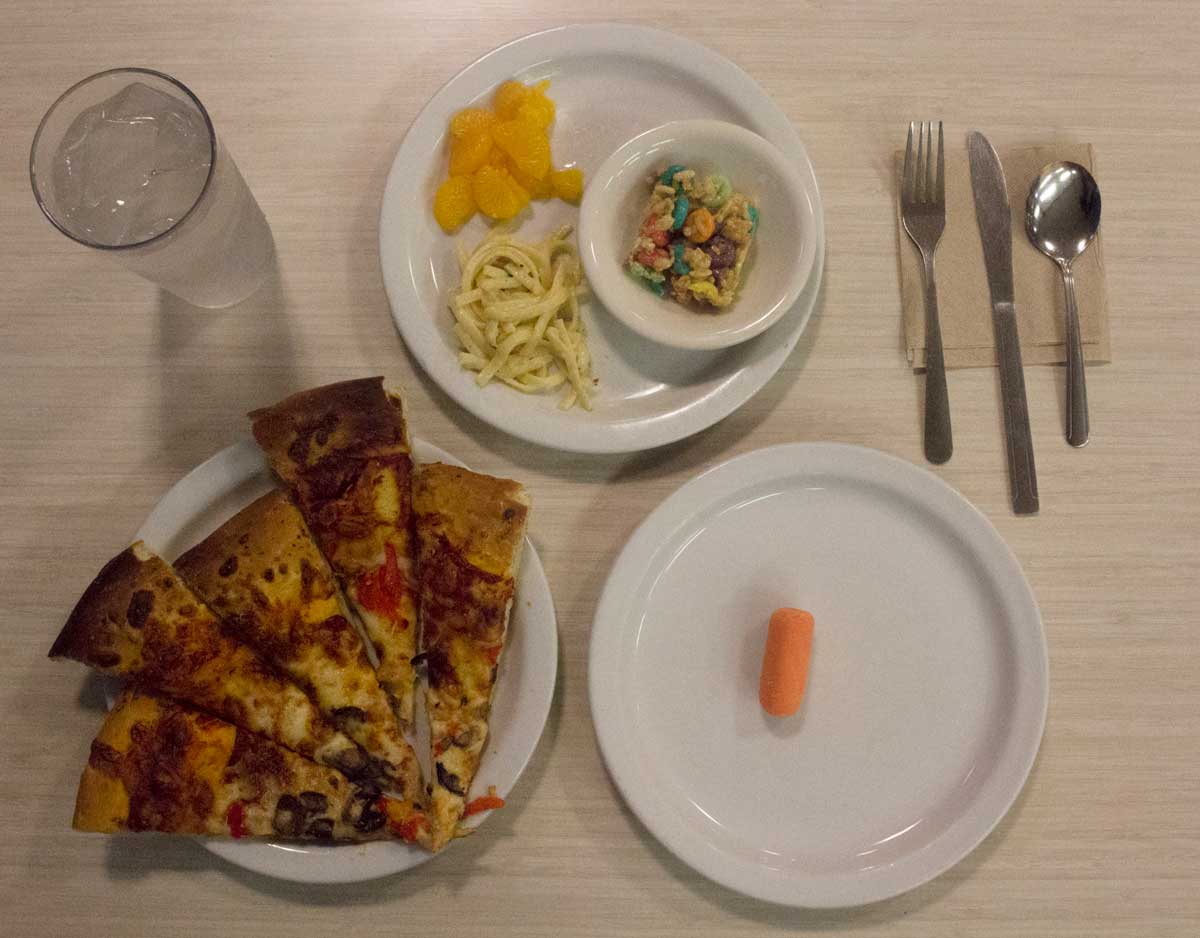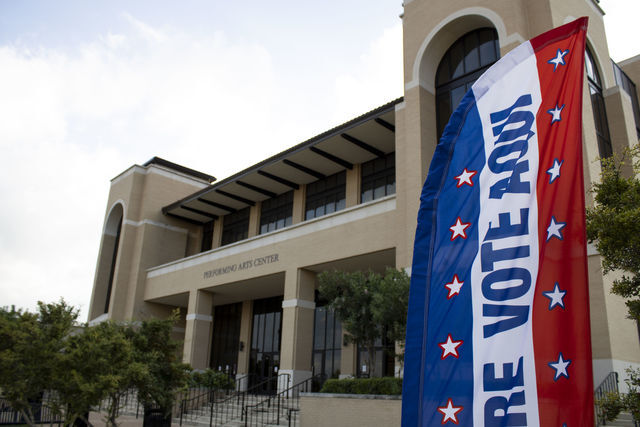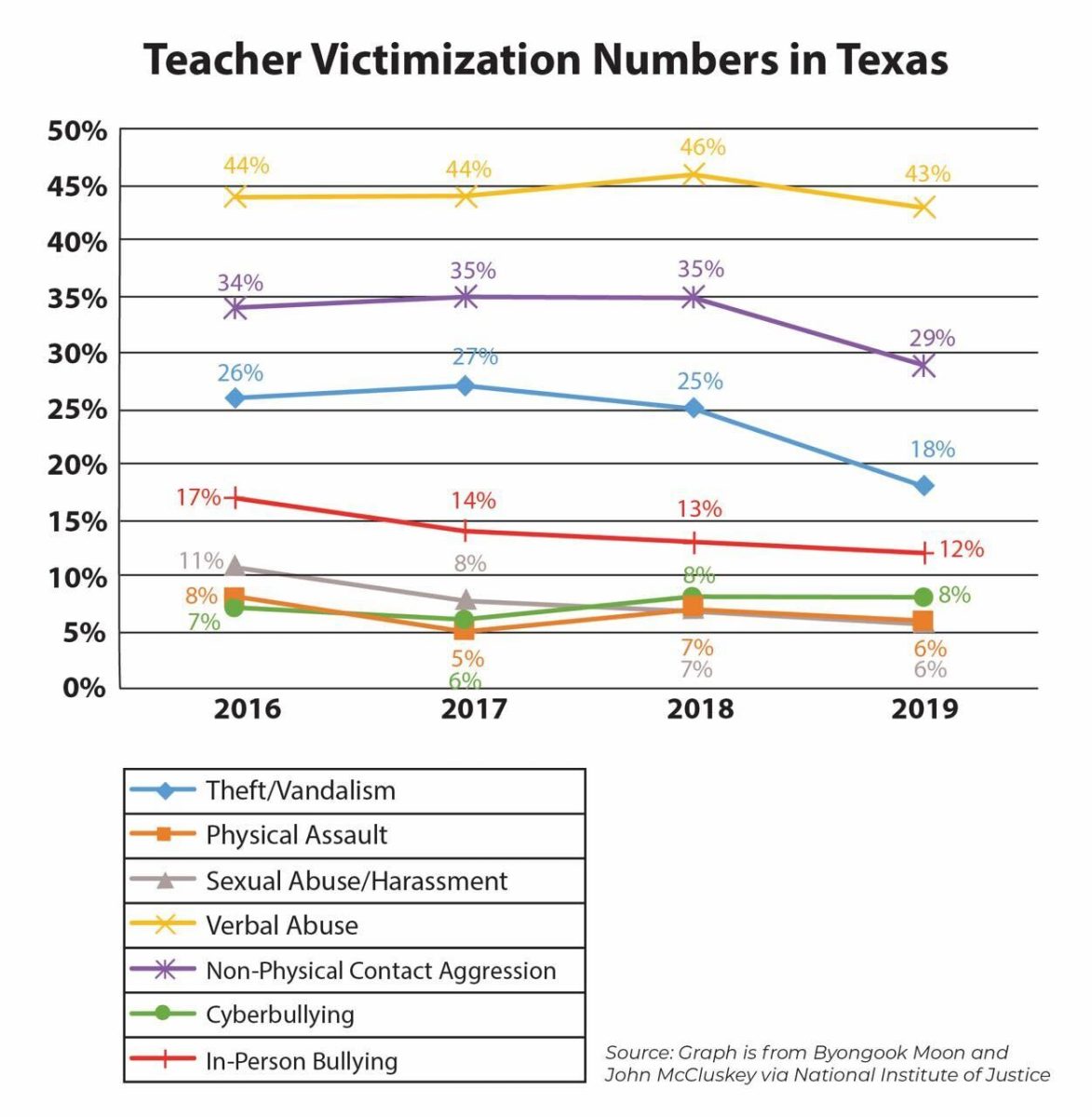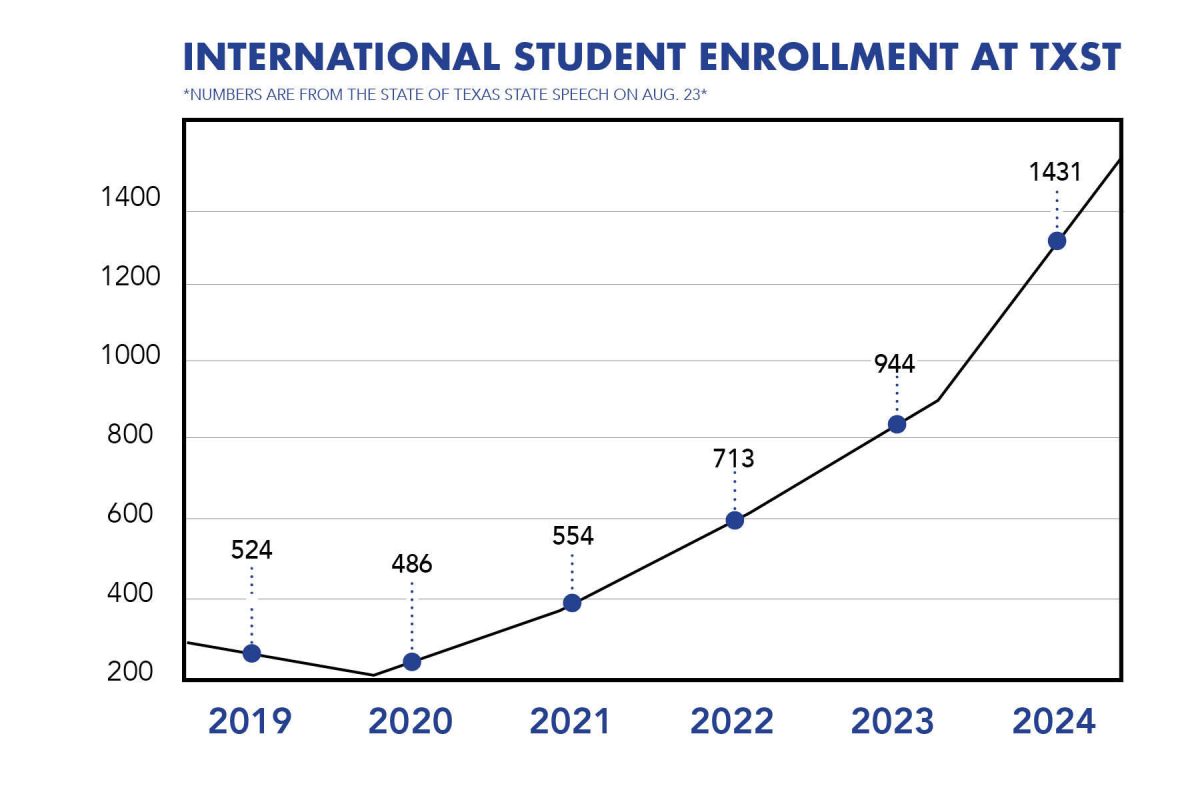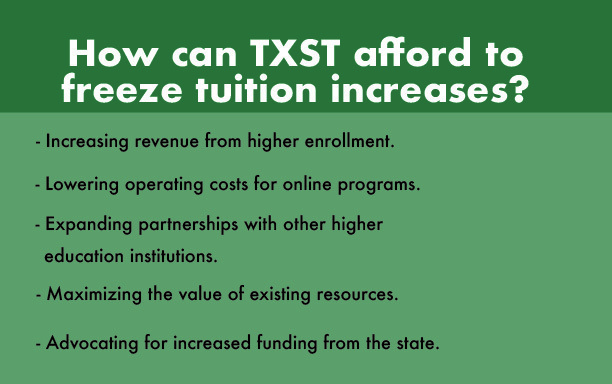A recent survey from The Walden Center for Education and Research showed eating disorders affect 20 percent of all college students. When this is applied to Texas State, data shows over 6,000 students struggle with this hardship every single day.
Casey Tallent, national collegiate outreach director for the Eating Recovery Program, spoke about their newly launched V-IOP Program. This new intensive outpatient program is a virtual resource for students who find themselves struggling eating disorders.
The program is similar to an in-person program, Tallent said. It involves three-hour groups that meet virtually three days a week on Tuesday, Thursday and Sunday nights.
The online meetings include an hour of individual therapy, meetings with a dietician and family counseling.
“(The online setting) eliminates the barrier of being concerned about body size and shape since everyone takes up the same size on the computer screen,” Tallent said.
The first months of freshman year are the most common times for a person to develop an eating disorder, according to Tallent.
“It’s a time where they are away from their family and friends for the first time,” Tallent said. “It’s a perfect storm with being away from your support system and a new, stressful environment.”
Genetic predisposition can determine if someone will develop an eating disorder. In some cases, eating disorders can take up to 6 years for recovery, according to Tallent.
To seek help, students at Texas State may also contact the counseling center where Laurie Westfall is the case manager. The center focuses on assessing patients on an individual basis by speaking and connecting with students about what they feel like is going on with their body and mind.
“Depending on how severe the problem is, we would personally determine whether we could serve them here or if they need to be referred to a specialist,” Westfall said.
If a student is in dire distress they are more likely to be sent to outpatient care, where they can get help sooner and more frequently.
The center recognizes the intense physiological and mental health consequences that these eating disorders entail. They focus on quick action to mitigate the damage.
Though, eating disorders are mainly categorized as a mental health concern, Kayli Bass, a junior nutrition major, is able to look at these disorders through the lens of a nutritionist.
“Overall these disorders cause the individual to become deficient in macro and micronutrients that are vital for growth and health,” Bass said.
These deficiencies cause the metabolism to slow down and other areas of health become at risk.
Irregular heartbeats, kidney failure, and high blood pressure are a few of the health consequences of an eating disorder.
“My personal definition of nutrition is ‘to be healthy is to be happy’ meaning you should enjoy what you eat while giving your body the nutrients it needs to survive,” Bass said. “Eating something unhealthy for you doesn’t have to be bad if it makes you happy; it’s okay to treat yourself once in a while.”
Few courses at Texas State provide education about these disorders. Bass admits that her formal education on these topics was brief and only covered the symptoms of each disorder.
“As a nutrition major I believe eating disorders should be more of a concern and should go into depth in our curriculum,” Bass said.
The Eating Recovery Program does free assessments and works with insurance so that patients can receive the treatment they need. This resource, along with more information on eating disorders and treatment, can be reached on their website at eatingrecoverycenter.com
Categories:
Resources available for students battling eating disorders
October 28, 2017
Photo by Hannah Felske | Staff Photographer
0
Donate to The University Star
Your donation will support the student journalists of Texas State University. Your contribution will allow us to purchase equipment and cover our annual website hosting costs.
More to Discover


